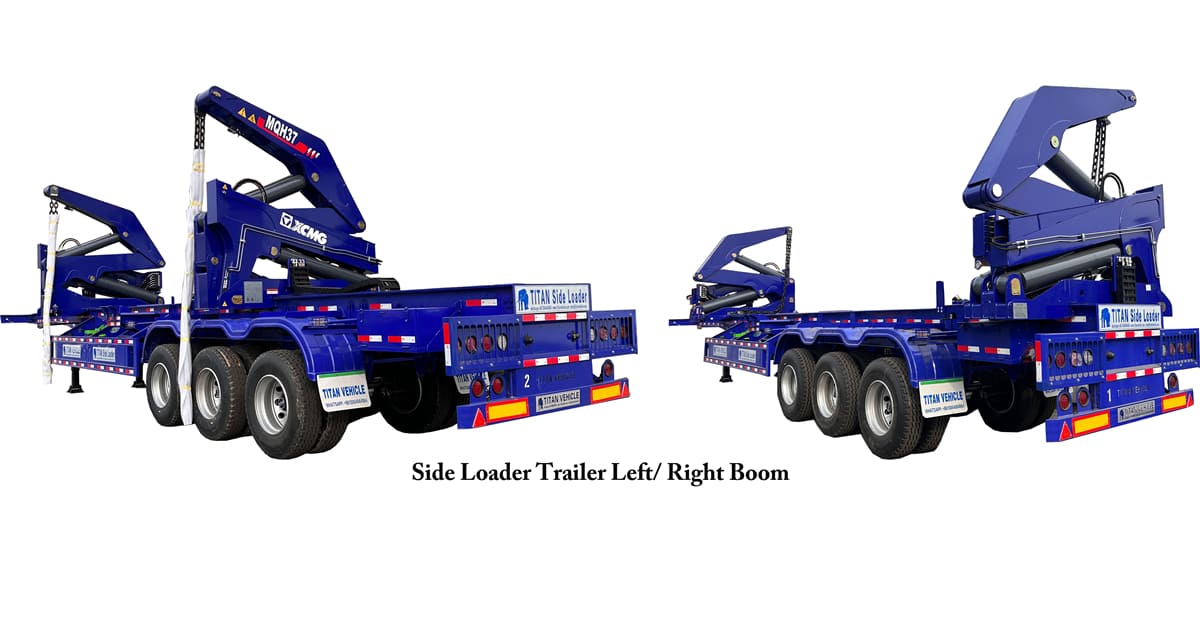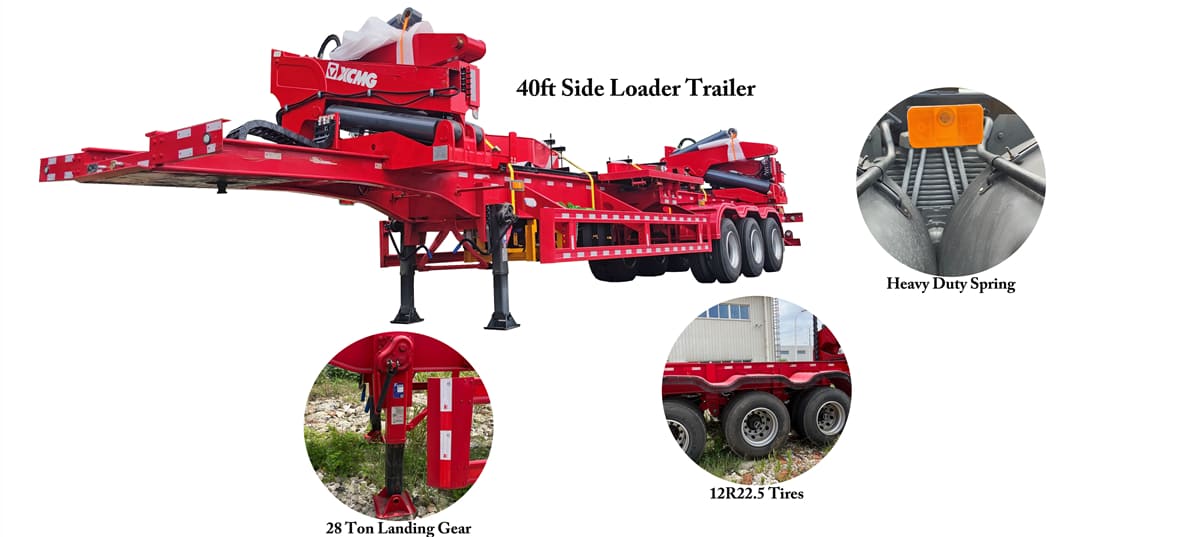 What Is The Difference Between A Sideloader And A Trailer?
What Is The Difference Between A Sideloader And A Trailer?
When it comes to transporting heavy or oversized cargo, businesses often rely on specialized equipment such as sideloader trailers and trailers. While both are used to transport cargo, they function very differently. Understanding their differences can help you choose the right solution for your logistics needs.
When it comes to container shipping, many people often wonder: What is the difference between a side loader trailer for sale and a trailer? While both are used to transport containers and heavy cargo, they are designed to function differently, and understanding their differences is essential to choosing the right logistics equipment.
A standard semi-trailer is a piece of transport equipment that requires an external crane or forklift to load and unload cargo, especially containers. Flatbed trailers, skeletal trailers, lowbed trailers, and fence trailers are all examples of traditional semi-trailers. They are versatile and have high payload capacities, but rely on external lifting equipment, which can be expensive and time-consuming.
Types of standard trailers:
Flatbed trailers have an open design and are suitable for a variety of cargo.
Lowbed trailers – suitable for tall or heavy equipment.
Telescopic trailers – adjustable in length, suitable for oversized cargo.
Enclosed trailer – provides a protected cargo space.
Limitations of standard trailers:
Requires external loading equipment (forklift, crane). Poor maneuverability in tight spaces. Inefficient rear loading in congested areas.
 What Is The Difference Between A Sideloader And A Trailer?
What Is The Difference Between A Sideloader And A Trailer?
A side loader trailer for sale is a special trailer with hydraulic cranes mounted on the chassis. These cranes allow the trailer to independently load and unload containers from the side without the need for additional lifting machinery.
Side loader trailers for sale are designed to load and unload cargo from the side rather than the rear. Unlike conventional trailers, side loader trailers are equipped with hydraulic crane or forklift attachments, allowing the operator to precisely lift and position heavy loads.
Key Features of Side Loader Trailer for Sale
A sideloader trailer can load and unload 20-foot and 40-foot containers on the ground, on another trailer or on the chassis. This is ideal for areas with limited infrastructure or tight urban distribution yards.
No external crane or forklift is required. A sideloader trailer can be loaded and unloaded in less than 10 minutes, reducing labor and equipment costs.
The side loader trailer for sale is perfect for container transport, intermodal transport, and even military or humanitarian missions. Operators can also use it to stack containers in warehouses (up to 2 layers high).
The sideloader trailer features a wireless remote control to ensure precise container placement and improve the safety of loading operations.
TITAN offers a full range of sideloader trailers to meet the needs of different customers:
20-foot and 40-foot side loader trailer options
Lifting capacity: 37 tons, 45 tons, or 50 tons
Chassis type: three-axle or customized
Hydraulic system: equipped with a power pack (diesel engine or power take-off)
Remote control: optional wireless system for convenience
 What Is The Difference Between A Sideloader And A Trailer?
What Is The Difference Between A Sideloader And A Trailer?
The application of side loader trailer for sale is container yard operations, shipping ports and inland terminals, military and emergency logistics
The main difference between side loader trailer for sale and trailers is the container handling capacity. Standard trailers rely on external equipment, while side loader trailer for sale are independent, efficient, and flexible. If you need to handle container operations frequently, especially in areas without crane support, then TITAN side loader trailer for sale is your ideal choice.
While both side loader trailers for sale and standard trailers serve the transportation industry, their main differences lie in loading methods, maneuverability, and efficiency. Sideloader trailers excel in confined spaces and self-loading operations, while standard trailers are better suited for general cargo transportation and offer better value for money.
If your business involves containers, heavy machinery, or narrow loading and unloading areas, a sideloader trailer is a wiser investment. For standard cargo transportation, a conventional trailer may be sufficient.